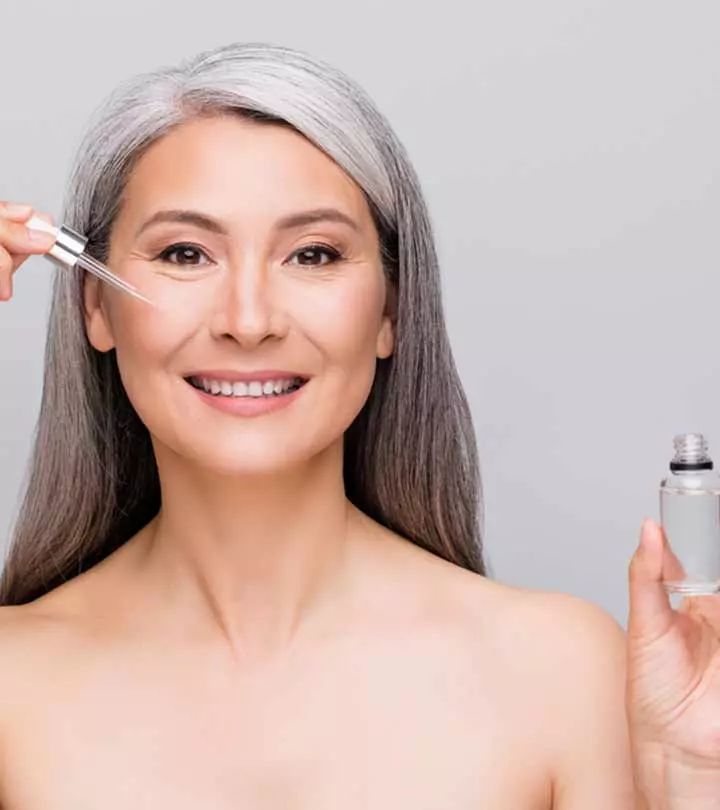In the ever-evolving world of skincare, myths about Wrinkles Treatment are everywhere. From old wives’ tales to viral social media advice, it’s easy to fall for misinformation. If you’re trying to reduce fine lines and signs of aging, it's crucial to separate fact from fiction. This blog will help you debunk some of the most common myths about Wrinkles Treatment and guide you toward methods that truly work.

Myth 1: Only Expensive Products Work
Price doesn’t always equate to effectiveness. Many affordable drugstore products contain clinically proven ingredients like retinol, peptides, and hyaluronic acid that can deliver excellent results over time. It’s all about the formulation—not the brand name.
Myth 2: Natural Remedies Are the Best
While natural options like coconut oil, aloe vera, and green tea have moisturizing or antioxidant properties, they are not a replacement for medically tested anti-aging solutions. Clinical ingredients like retinoids and peptides are more effective at stimulating collagen and reducing wrinkles.
Myth 3: You Don’t Need Wrinkles Treatment Until Your 40s
Prevention is better than cure. Starting Wrinkles Treatment in your 20s or 30s—such as daily SPF use, hydration, and antioxidant serums—can delay or prevent deep-set lines from forming.
Myth 4: Botox Freezes Your Face Permanently
Botox temporarily relaxes the muscles that cause expression lines. If stopped, your facial muscles return to normal function, and you won’t look older than before you started. It doesn’t “freeze” your face unless overused or incorrectly administered.
Myth 5: Retinoids Thin the Skin
Initially, retinoids may cause dryness or irritation, but over time, they actually thicken the skin by boosting collagen and increasing cell turnover. It’s one of the most recommended Wrinkles Treatment ingredients by dermatologists.
Myth 6: Moisturizers Can Eliminate Wrinkles
Moisturizers improve skin hydration and may reduce the appearance of fine lines temporarily, but they don’t eliminate wrinkles. For long-term results, treatments must address the deeper layers of the skin.
Myth 7: Facial Exercises Remove Wrinkles
Contrary to popular belief, repeated facial movements can deepen wrinkles, not reduce them. Repetitive muscle use can create expression lines, which is why treatments like Botox work by relaxing those muscles.
What Actually Works for Wrinkles?
Let’s look at some evidence-backed Wrinkles Treatment options that deliver real, visible results:
-
Retinoids (Tretinoin, Retinol): Boosts collagen and improves skin texture.
-
Peptides: Stimulates collagen and elastin production.
-
Hyaluronic Acid: Hydrates and plumps the skin.
-
Botox and Fillers: Reduce dynamic and static wrinkles effectively.
-
Microneedling: Encourages skin regeneration and collagen growth.
-
Laser Treatments: Resurfaces skin and improves elasticity.
-
Chemical Peels: Improves skin tone, texture, and fine lines.
-
Daily Sunscreen: Prevents new wrinkles from forming due to UV exposure.
LSI Keywords You Should Know
Anti-aging skincare, Fine lines and wrinkles, Collagen stimulation, Skin elasticity, Botox myths, Retinol facts, Natural vs. clinical skincare, Skin rejuvenation
FAQs
Q1: Are home remedies safe for Wrinkles Treatment?
A: While many natural remedies are safe for general skincare, they typically don’t provide long-term wrinkle reduction like clinical treatments do.
Q2: Is it true that Botox is addictive?
A: No, Botox is not physically addictive. However, many people choose to continue treatment due to its effective results.
Q3: Can over-the-counter retinol work as well as prescription retinoids?
A: OTC retinol is effective but slower-acting. Prescription-strength retinoids show quicker and more dramatic results.
Q4: Will skipping sunscreen undo my Wrinkles Treatment progress?
A: Yes. Sun exposure is the leading cause of premature aging. Skipping SPF can accelerate wrinkle formation even with ongoing treatments.
Q5: Are there side effects with clinical Wrinkles Treatments?
A: Some treatments, like retinoids or peels, may cause initial dryness or irritation. Injections may lead to temporary swelling or bruising. Always consult a professional before starting.